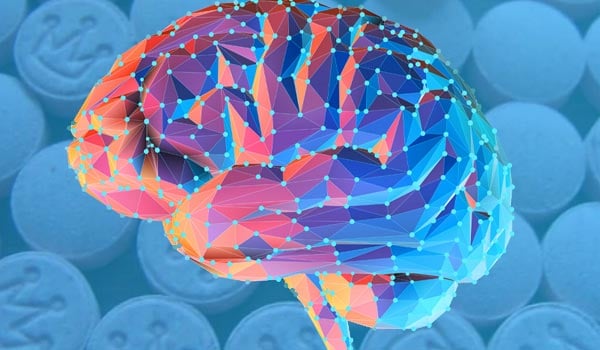Sometimes known as Ecstasy, MDMA is a psychoactive drug that could become one of the most powerful materials in the treatment of Post-traumatic stress disorder. The US Food and drug administration positions MDMA-assisted psychotherapy as a breakthrough in therapy. While it is not officially approved or legal in clinical psychotherapy, it has gained increased access status in 2020 in the US and Israel. Following results from preliminary clinical case studies, there is a high-level promise that the FDA can approve MDMA-assisted therapy for PTSD without fail in 2023.
The Director of Mount Sinai’s traumatic stress studies division, Dr. Rachel Yehuda, completed clinical training do MDMA-assisted psychotherapy sponsored by the Multidisciplinary Association of Psychedelics Studies (MAPS). While she plans to launch a center for psychedelic psychotherapy and trauma at Mount Sinai, focusing on MDMA-assisted and Psychedelic-assisted psychotherapy, she interestingly explained the five things that psychiatrists should know about MDMA-based psychotherapy.
1. The history
Merck, a German pharmaceutical company in 1912 we’re first to synthesize MDMA and patent it. Between the 1970s-and 1980s, the drug became used by psychiatrists in therapy to enhance reflection and interpersonal communication. However, it was banned because it was used in sports in such a manner that could lead to harm and abuse by the US drug enforcement administration in 1985 while assigned a schedule 1 controlled substance.
2. How it works.
Neurotransmitters such as serotonin, dopamine, and norepinephrine, coupled with several hormones such as oxytocin, cortisol, prolactin, and vasopressin, are released when MDMA is taken. However, according to Dr. Yehuda, these releases do not entirely give insight into the sense of empathy towards self and openness to follow through with introspection. Folks taking MDMA talk about being energized, well, empathetic, transcendent, and pressurized in the senses– these are parameters required for assessing difficult or traumatic conditions.
3. How it’s administered.
120mg of MDMA is the required ingested dose in any typical MDMA-assisted psychotherapy session. It is combined with a 40mg dose given about two hours after the initial dose to elongate its effect on the user. MDMA effects can last as long as 8hours, during which the patient has the opportunity to reminisce past events and emotions with trained therapists. The sessions of preparation and integration enable the patient to harness the gains from therapy. On a general note, patients do two or three sessions within a 12-week timeline.
4. What to tell patients.
It is the best advice for patients willing to attempt MDMA-assisted psychotherapy within clinical trials until the FDA legalizes it. While the recreational use of MDMA is recognized, it will never produce the therapeutic effects of MDMA-assisted psychotherapy. It is because it intends to provide a platform for the individual to walk through painful emotions under the watch and guidance of trained psychotherapists.
There are some medical contraindications associated with taking MDMA, and this requires that patients go through the physical clearance test to ascertain their acceptability. On the flip, MDMA has a safety record if administered under the proper protocol. Are you interested in the study? Please visit mdmaptsd.org
5. The evidence.
According to Dr. Yehuda, there has been more evidence of therapeutic strength in MDMA-assisted psychotherapy than in any other form of psychotherapy or treatment for PTSD. As evidenced in symptom reduction, the effect of using MDMA-assisted psychotherapy is very much quicker, unlike other therapies for PTSD, which lasts more than twice the time of MDMA-assisted psychotherapy. MDMA-assisted therapy does not leave PTSD symptoms lasting up to a year. Researchers believe that this is because MDMA allows the patients to go through the experience of their trauma without the associated pain. It empowers them to work through the experience aided by their therapist.
Dr. Yehuda’s interest in MDMA-assisted psychotherapy results from her 30-year career in connecting PTSD to specific biological alterations in the human body. She was also committed to developing new approaches to treating PTSD. Her research uses clinical trials, computational genetics, molecular biology, blood samples, and neuroimaging to accelerate MDMA and psilocybin work understanding. The center also holds clinical training for therapists awaiting FDA approval and leads public and scientific education, including a monthly lecture series.
With unreserved interest in MDMA-assisted psychotherapy, Dr. Yehuda is culminating her 30-year career devoted to discovering biological alterations in PTSD and resilience and developing creative novel treatment techniques to prevent PTSD and its associated treatment. Her research base uses clinical trials, computational genetics, molecular biology, blood samples, and neuro-imaging to quicken the understanding of the operational procedure for MDMA and psilocybin. Dr. Yehuda’s center also trains therapists in anticipation of FDA approval and leads public and scientific learning, which includes the lecture series she hosts monthly.
Conclusion:
Moonhaus is Canada’s #1 psychedelics Company that offers top-quality products. You can shop with us for all your ketamine needs as we’ve got you covered. Some of our products feature DMT pens, LSD Tabs, ketamine, and Magic mushrooms, among many others. We have a responsive AI you can chat with to help you navigate the site quickly so you can enjoy your shopping experience. For all your top-quality psychedelic products, shop with us at Moonhaus.

